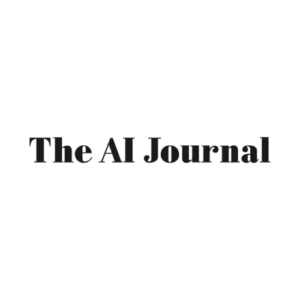How AI Tech Advances Are Changing Charting Systems for Nurses Across The U.S.
Artificial Intelligence (AI) introduced a revolutionary change that has transformed the complete world for the past several years. Currently, anyone can see how efficiently every sector runs with at least one artificial intelligence application which simplifies their operational activities.
The healthcare sector is also influenced by AI, particularly when it comes to talking about nursing charting systems. These new AI-powered documentation tools help streamline workflows, making them get executed in a better way.
This, in turn, also helps reduce human errors, and allows for one advantage that stands out from everything else – nurses can give more time and dedicated efforts to their patients, instead of fretting and running about, making sure that they do not miss anything while documenting stuff.
This automation and shift towards AI tools are helping transform the nursing profession and as a whole, affects registered nurses, nurse practitioners, and all the other specialized nurses such as pediatric nurses (pediatric nurse salary), labor and delivery nurses.
AI-Powered Charting Systems: Faster, Smarter, And More Efficient
The older, traditional documentation methods are detailed and extensive. They do not help ease the workload of the nursing staff. Instead, all this documentation work requires extensive manual input, undivided attention from the nursing staff, and long hours of work, which ultimately contributes to developing burnout among nurses.
However, ever since AI-dependent charting systems have been brought into practice, things seem to have gotten a lot easier for the nursing staff. AI-powered electronic health records (EHRs) help with:
Automated Documentation:
With the help of AI-powered speech recognition tools, it is very convenient for nurses to transcribe patient interactions, patient updates, and other features that automatically minimize the need for manual data entry, which is undoubtedly a tedious task.
Predictive Analytics:
When they say AI is the future, they are not wrong. AI proves to be of tremendous help when it comes to analyzing patient data. This is particularly helpful when AI helps detect potential patient risks in critical care units, such as in an ICU, PACU or PICU.
Minimization Of Errors:
The constant use of AI does not create independence over it for no reason. Instead, it helps the AI software adapt to the documentation being done. This, in turn, helps flag any inconsistencies or errors within the charting system. This could mean that there is less chance of medication errors, which ensures proper compliance with the Board of Nursing guidelines.
How Does AI Benefit Different Nursing Specialties?
Apart from the above-mentioned general benefits, different nursing specialties can enjoy different benefits through the power of AI and its integrated charting system.
Some of the specialized nursing benefits include:
Travel Nursing & Remote Work Opportunities
AI-based charting systems enable travel nurses to quickly adapt to their new hospital protocols by providing them with real-time guidance about their new workplace. This comes in handy, especially for travel nurses, as they can quickly adapt to new hospital protocols simply by gaining real-time guidance through AI-powered tools.
Similarly, travel nursing jobs and remote nurse jobs both also require one to quickly adapt to their new work environment because of their demanding job nature. However, this too, could be achieved through the implementation of AI-powered tools, telehealth platforms, and charting systems, through which remote nurses and travel nurses can both benefit mutually. This AI-powered system also gives them the benefit of updating the charts from anywhere else, which is super convenient in the case of RN remote jobs.
Specialized Nursing Roles
The role of AI technology comes in handy when it comes to applying it in specialized areas such as surgical technology and radiology. The imaging analysis system supports both ultrasound technicians and MRI technicians to achieve accurate diagnostic results.
Efficiency for Nurse Practitioners and Assistants
AI technology boosts productivity among nurse practitioners by extracting patient background information and developing individualized treatment designs. Real-time AI assistance during operational procedures assists physician assistants and certified nursing assistants perform their jobs in a much better and more efficient manner.
AI in Nursing Education and Certification
AI is also helping reshape how nurses train and obtain certifications (CCRN Certification, NRP Certification, CHSE, and NCCT). Through this help, nursing students can use interactive simulations to practice hands-on clinical skills and AI-powered tutoring assists them with learning EKG interpretation, which could be a very helpful step for the EKG technician and the medication administration.
Overcoming Challenges in AI-Powered Charting
AI implementation presents both benefits and difficulties to healthcare facilities. Some of the challenges posed by these AI-powered charting systems include:
- AI-driven Electronic Health Records (EHR) systems must fulfill all requirements of HIPAA regulations to protect patient medical information security.
- Hospitals need to create educational training programs that teach nurses about using all the new AI tools they must familiarize themselves with.
- The first expenses related to AI implementation often result in significant startup costs for particular healthcare organizations.
The Future of AI in Nursing Charting
Artificial intelligence (AI) leads a fundamental change in healthcare that impacts every nursing occupation across the entire profession. AI exists as a real concept that is currently evolving in the healthcare industry. The technology currently operates to enhance hospital procedures and workflow efficiency while elevating patient healthcare standards.
Modern healthcare practices use AI-driven charting tools to help both nurses and other healthcare workers create precise and efficient patient documentation systems. AI-powered tools enable healthcare institutions to decrease clerical workloads thus expanding available time for nurses to deliver patient care. The streamlining process in registered nurse jobs produces better clinical results while decreasing medical professional stress, burnout, and fatigue rates.
AI and the Evolution of Healthcare Staffing
The healthcare workforce gets improved through AI technology by creating better planning methods for medical staff assignments. Healthcare staffing agencies use AI technology to link certified healthcare staff with suitable available roles thus ensuring medical facilities receive the necessary expertise exactly when they need it. The urgent need for specialized staff at different locations is perfectly served by this system, especially for travel surgical tech jobs.
AI implementation leads to increased accessibility with higher efficiency in healthcare job opportunities such as ultrasound tech jobs and radiology tech roles together with pharmacist jobs. The accuracy of clinical picture analysis increases through AI-assisted diagnostic equipment which leads to improved patient care outcomes along with better treatment designs.
Wearable Technology and AI in Nursing
AI is projected to merge with wearable health devices as a way to advance patient tracking methods. These devices will monitor vital signs in real-time to notify healthcare providers of impending health threats until an emergency develops.
The coming advancement will enable nurse practitioners, respiratory therapists, and occupational therapists to provide better proactive and individualized care to patients.
A Patient-Centered Future
AI advancements in healthcare create an opportunity to develop patient-centered care systems. AI automation of standard work allows nursing staff to spend more time with patients and to handle complex medical assessments with ease. Such transformation leads to improved care delivery for nurses as well as doctors who specialize in areas like speech-language pathology, cardiology, and dermatology.
AI development will expand healthcare boundaries which will enhance the value of jobs such as surgical technologist, pediatric nurse practitioner, and nurse anesthetist. The field of nursing, just like every other healthcare field is entering the future with Artificial Intelligence as the pioneer towards an intelligent and effective healthcare system centered around patient care.
Check out these other great Staffdna articles

Five States Facing the Biggest Nursing Shortages
According to the US Bureau of Labor Statistics (BLS), the number of registered nurses (RNs) in the United States is projected to grow by 6% through 2033, leading to approximately 194,500 job openings for nurses annually.

Recruiting the Next Generation: How to Attract and Retain Younger Nurses
Discover how hospitals can attract and retain Gen Z nurses by embracing social media recruiting, flexible work options, and values-driven culture. Learn what this next-gen healthcare workforce is really looking for.

Finding a Job You Love Has Never Been Easier
The time has come to make finding a job as easy as possible. If you’re in healthcare, you know that the industry faces a growing demand for qualified professionals, and candidates are competing for the highest-paying jobs.

In the Can: 5 Types of Presentations Every CEO Needs to Have
As a CEO, crafting effective presentations is essential to communicating your company’s vision, plans and progress to different audiences.

Cracking the Code on AI Innovation
Companies must remain competitive in the age of AI, not by merely adopting it but by strategically leveraging it to transform operations.

Updates on Compact Nursing Nationwide and How to Apply for a Compact License
International Women’s Day is a day to celebrate women’s achievements, contributions, and progress worldwide.
